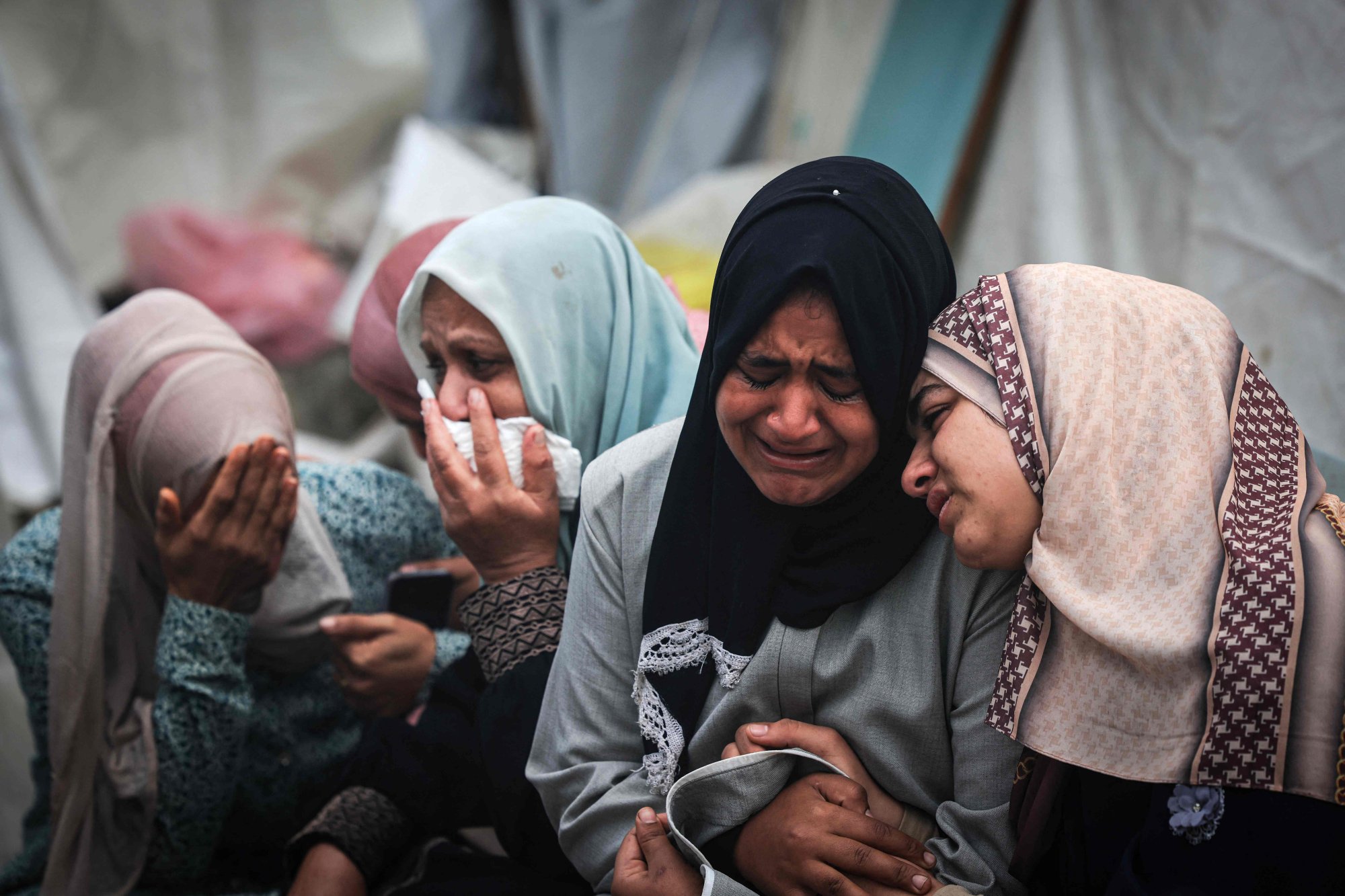In central Gaza, Israeli warplanes and artillery pounded the built-up Bureij and Nuseirat refugee camps, levelling buildings, residents said. Israel said this week it would expand its ground offensive into central Gaza, and typically launches waves of air strikes and shelling before troops and tanks move in.
Israeli embassy deletes ‘inappropriate’ video imagining Hamas attack in Seoul
Israeli embassy deletes ‘inappropriate’ video imagining Hamas attack in Seoul
A hospital in the nearby town of Deir al-Balah received the bodies of 25 people killed overnight, including five children and seven women, hospital records showed on Thursday. Nonstop explosions could be heard throughout the night in the town – where hundreds of thousands of people have sought shelter, with many spending cold nights sleeping on pavements.
“It was another night of killing and massacres,” said Saeed Moustafa, a resident of the Nuseirat camp. He said people were still crying out from the rubble of a house hit by an air strike on Wednesday.
“We are unable to get them out. We hear their screams but we don’t have equipment,” he said.
Farther south, in Khan Younis, the Palestinian Red Crescent said a strike near its Al-Amal Hospital killed at least 10 people and wounded another 12. Much of the city’s population has left, but many are sheltering near Al-Amal and another hospital, hoping they will be spared from the bombardment.

One of the many people displaced, young mother Iman al-Masry, recently gave birth to quadruplets in a hospital in southern Gaza after fleeing her family’s home in the devastated north.
The arduous journey “affected my pregnancy”, the 28-year-old said, recounting that she gave birth by C-section on December 18 to two girls and two boys, one of whom was too fragile to leave the hospital.
“They are very slim,” she said of the three other infants, speaking in a cramped schoolroom turned shelter in Deir al-Balah. “It’s cold and windy and there’s no bathtub … I just use wipes.”
“There’s no nutritious food I can eat to breastfeed the three babies.”
The World Health Organization (WHO) chief Tedros Adhanom Ghebreyesus called for “urgent steps to alleviate the grave peril” facing Gaza’s people, including “terrible injuries, acute hunger and … severe risk of disease”.
The WHO said only 15 out of 36 hospitals in the Gaza Strip are functioning with any capacity at all.
A United Nations report issued on Thursday said the human rights situation in the occupied West Bank was rapidly deteriorating and urged Israel to “end unlawful killings” against the Palestinian population.
“The use of military tactics and weapons in law enforcement contexts, the use of unnecessary or disproportionate force, and the enforcement of broad, arbitrary and discriminatory movement restrictions that affect Palestinians are extremely troubling,” UN rights chief Volker Turk said in a statement.
Here is death and there is death. To die in your home is better
Rami Abu Mosab, who lives in the Bureij refugee camp, said thousands of people have fled their homes in recent days because of the intense bombardment. He plans to remain there because he does not feel that anywhere in Gaza is safe.
“Here is death and there is death,” he said, “To die in your home is better.”
Bureij and Nuseirat are among several camps across the region that were built to house hundreds of thousands of Palestinian refugees from the 1948 war surrounding Israel’s creation. They have since grown into crowded residential neighbourhoods.
Some 700,000 Palestinian fled or were driven from their homes during that conflict, an exodus the Palestinians refer to as the Nakba, or catastrophe. Some 1.9 million have been displaced within Gaza since October 7.
As Israel has broadened its offensive, fleeing Palestinians have packed into areas along the Egyptian border and the southern Mediterranean coastline, where shelters and tent camps are overflowing. Even in those areas, Israel continues to strike what it says are militant targets.
The Israeli military blames the high civilian death toll on Hamas, which positions fighters, tunnels and rocket launchers in dense residential areas. But the military rarely comments on individual strikes.
The war has already killed more than 21,000 Palestinians and driven around 85 per cent of the population of 2.3 million from their homes. Much of northern Gaza has been levelled, largely depopulated and isolated from the rest of the territory for weeks. Many fear a similar fate awaits the south.
The military says it has killed thousands of militants, without presenting evidence, and that 167 of its soldiers have been killed in the ground offensive.
The United States – while providing crucial support for the offensive – has urged Israel to take greater measures to spare civilians and allow in more aid. But aid workers say the amount of food, fuel and medical supplies entering is still far below what is needed, and 1 in 4 Palestinians in Gaza are starving, according to UN officials.
French President Emmanuel Macron in a call with Israeli Prime Minister Benjamin Netanyahu voiced his “deepest concern at the very heavy civilian toll” and stressed “the need to work towards a lasting ceasefire”, Macron’s office said.

